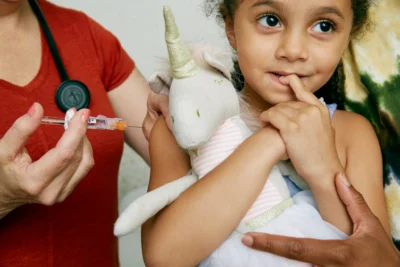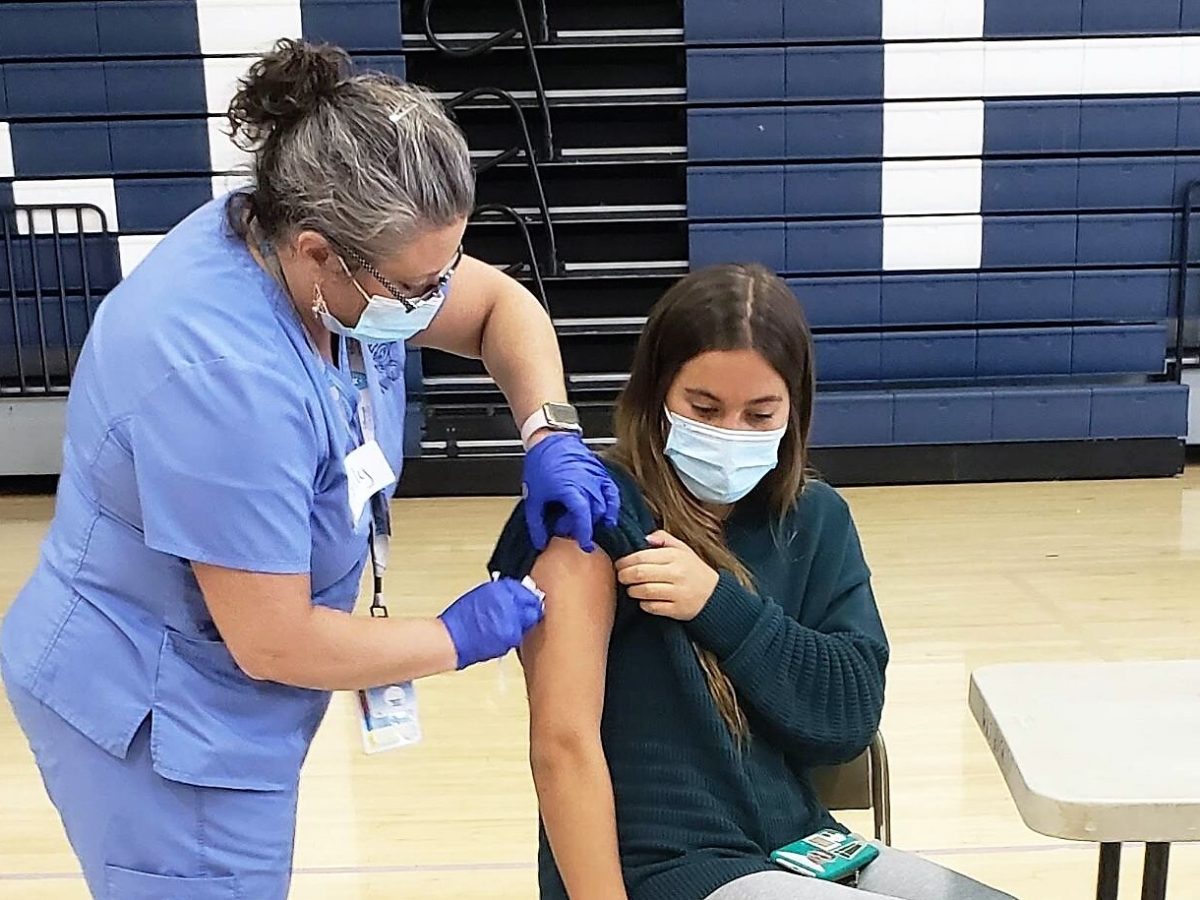
In June 2025, the N.C. Department of Health and Human Services (NC DHHS) confirmed the first case of measles this year in North Carolina.
In July, Haywood County first confirmed six active cases of pertussis, commonly called whooping cough, in children and teens, and that number has since increased to 13.
The U.S. Centers for Disease Control (CDC) released new data last week showing “coverage with MMR, DTaP, poliovirus vaccine (polio), and varicella vaccine (VAR) decreased in more than half of states, compared with coverage the year before.”
In North Carolina, coverage is higher than across the United States, and coverage increased compared to 2023-24, according to the data.
| 2024-25 | U.S. | N.C. |
| DTaP | 92.1% | 94% (up from 93.5%) |
| MMR | 92.5% | 94.2% (up from 93.8%) |
| Polio | 92.5% | 94.2% (up from 93.8%) |
| Hepatitis B | 94% | 95.2% (up from 94.8%) |
With vaccines in the state, national, and international news, here is what you need to know.
![]() Sign up for the EdWeekly, a Friday roundup of the most important education news of the week.
Sign up for the EdWeekly, a Friday roundup of the most important education news of the week.
Which vaccines are required for students in North Carolina?
According to NC DHHS, regardless of school setting, “North Carolina law requires that all children must get certain vaccines.”
“School principals and child care operators are responsible for enforcing state immunization laws for school entry,” says the website.
Here are the vaccine requirements for young children up to age four.
The immunizations required in kindergarten, seventh, and twelfth grades are listed below.
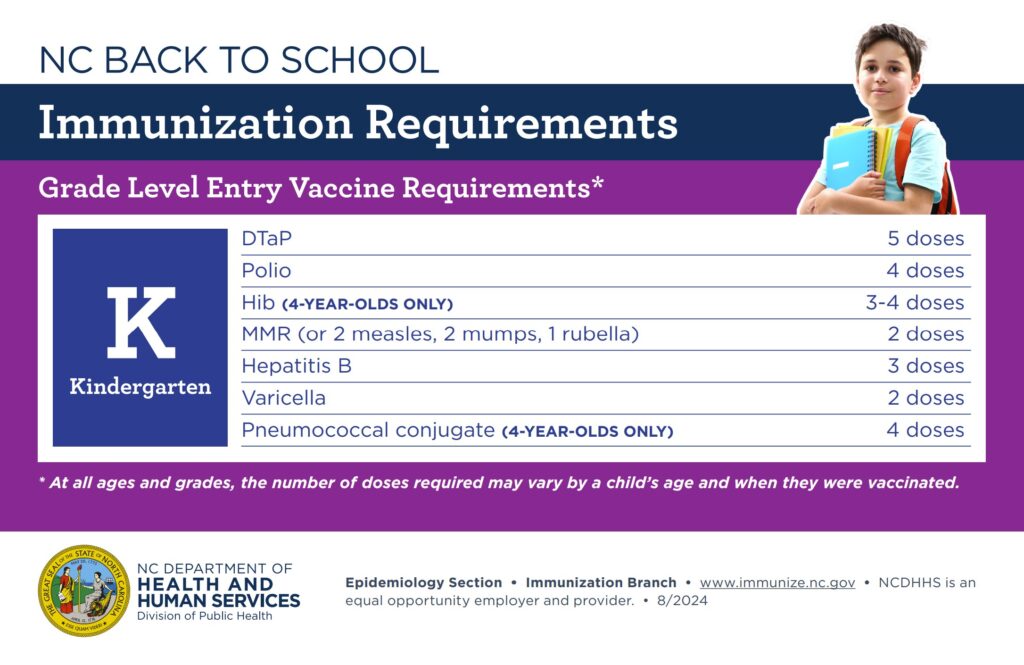
Here is a kindergarten immunization data dashboard, where you can see the percentage of students by county with up-to-date vaccines.
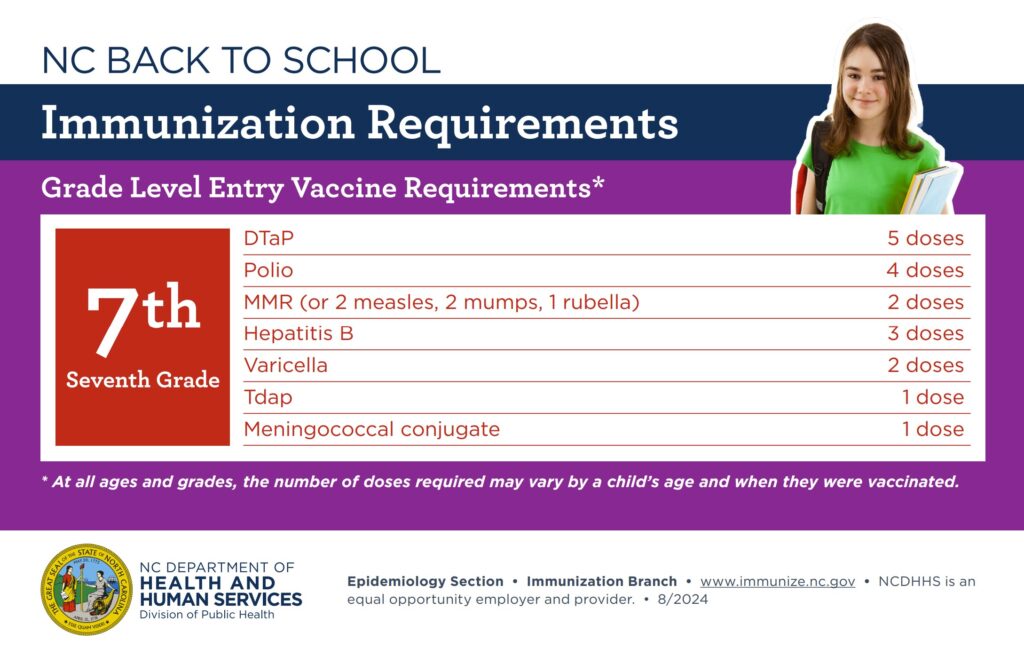
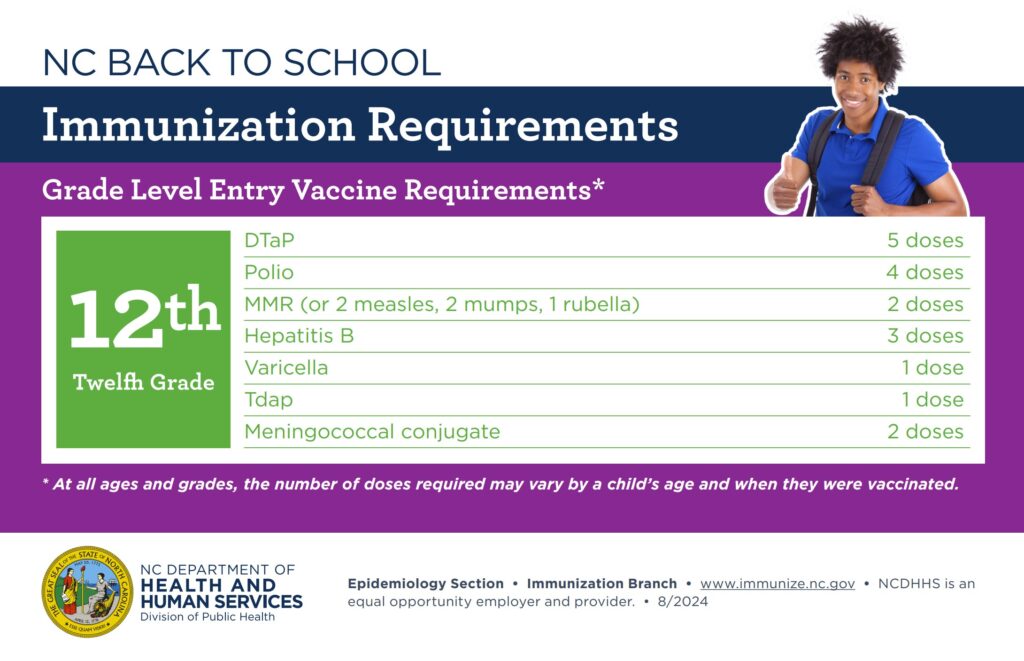
Your child’s school will ask you to provide a “certification of immunization” filled out by your health care provider within 30 calendar days from the first day of attendance.
Exemptions are allowed for medical and religious reasons only. According to the CDC data, there were 3,948 exemptions in 2024-25 in North Carolina.
If your child is missing doses, your health care provider can provide guidance on how to catch up.
The Vaccines for Children (VFC) program helps eligible families get free vaccines. You can search by city or zip code to find a provider near you.
Vaccines for flu, COVID, and RSV (respiratory syncytial virus) are not required. The CDC says parents should talk to their healthcare providers about those vaccines.
“RSV is the number one cause of infant hospitalizations,” according to NC DHHS, and “children under five are at higher risk for severe illness” for respiratory illnesses. Here is a dashboard where you can track the prevalence of these viruses across North Carolina.
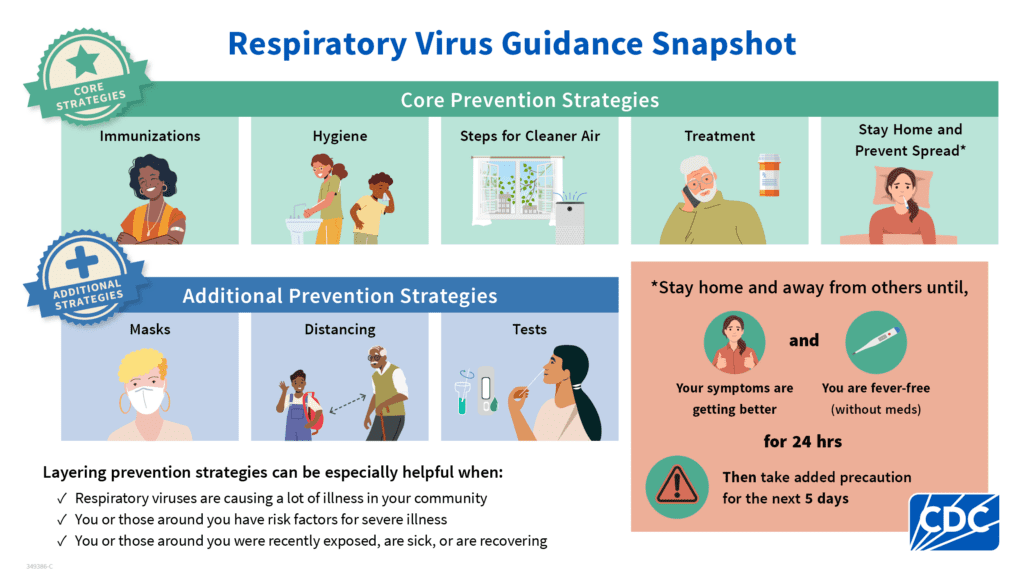
Here is more information on the state’s immunization laws, rules, and regulations.
Here is more information on vaccine schedules for you and your family from the U.S. Centers for Disease Control and Prevention (CDC).
What to know about measles
According to NC DHHS, “Measles cases continue to rise across the country. Cases surged from 59 in 2023 to 285 in 2024. As of June 19, 2025, there are 1,214 confirmed U.S. cases.”
In June 2025, NC DHHS confirmed the first case in the state, which occurred when a child visiting Forsyth and Guilford counties from another country where measles outbreaks have been reported became ill.
“The measles, mumps, and rubella (MMR) vaccine is the best way to protect yourself and others,” says the website. “Two doses are 97% effective at preventing measles.”
What to know about whooping cough
On July 9, 2025, the local health department in Haywood County first reported five active cases of pertussis, commonly known as whooping cough. As of Aug. 1, that number has increased to 13.
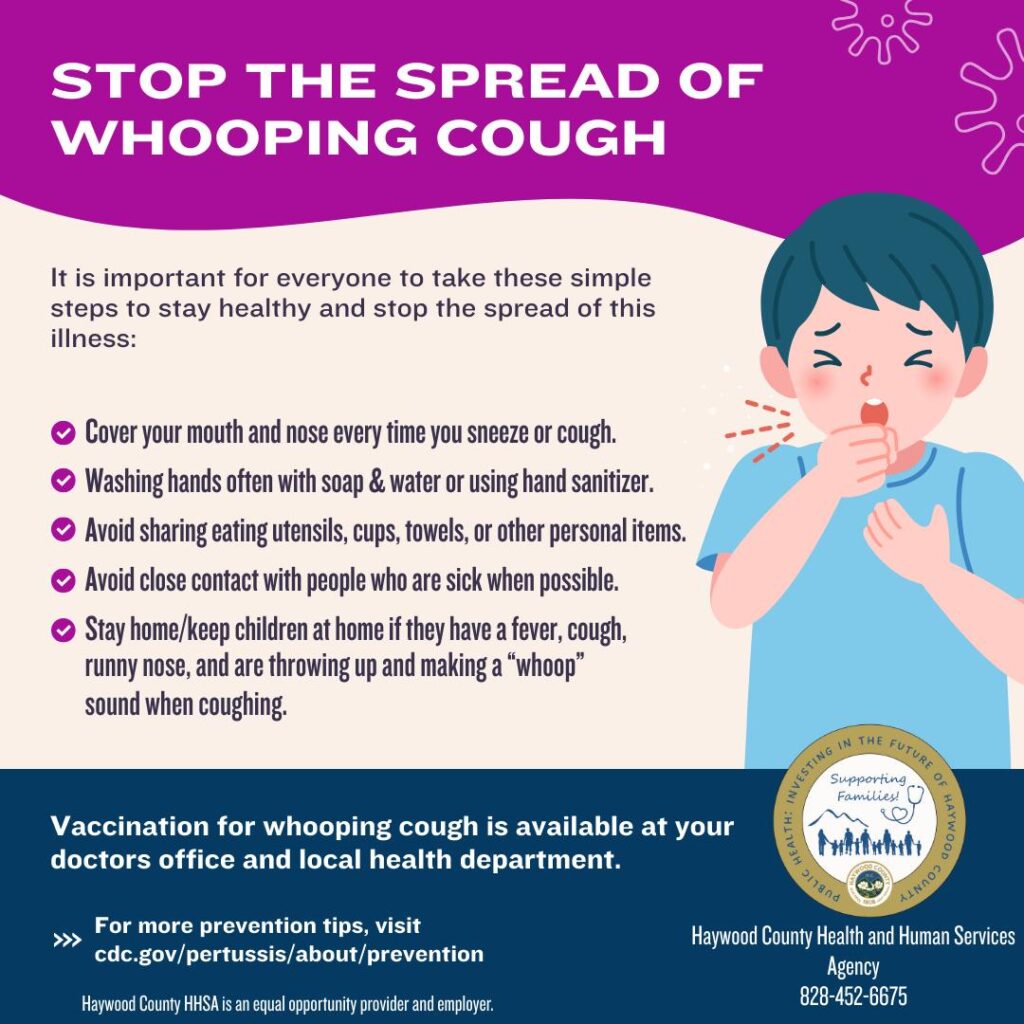
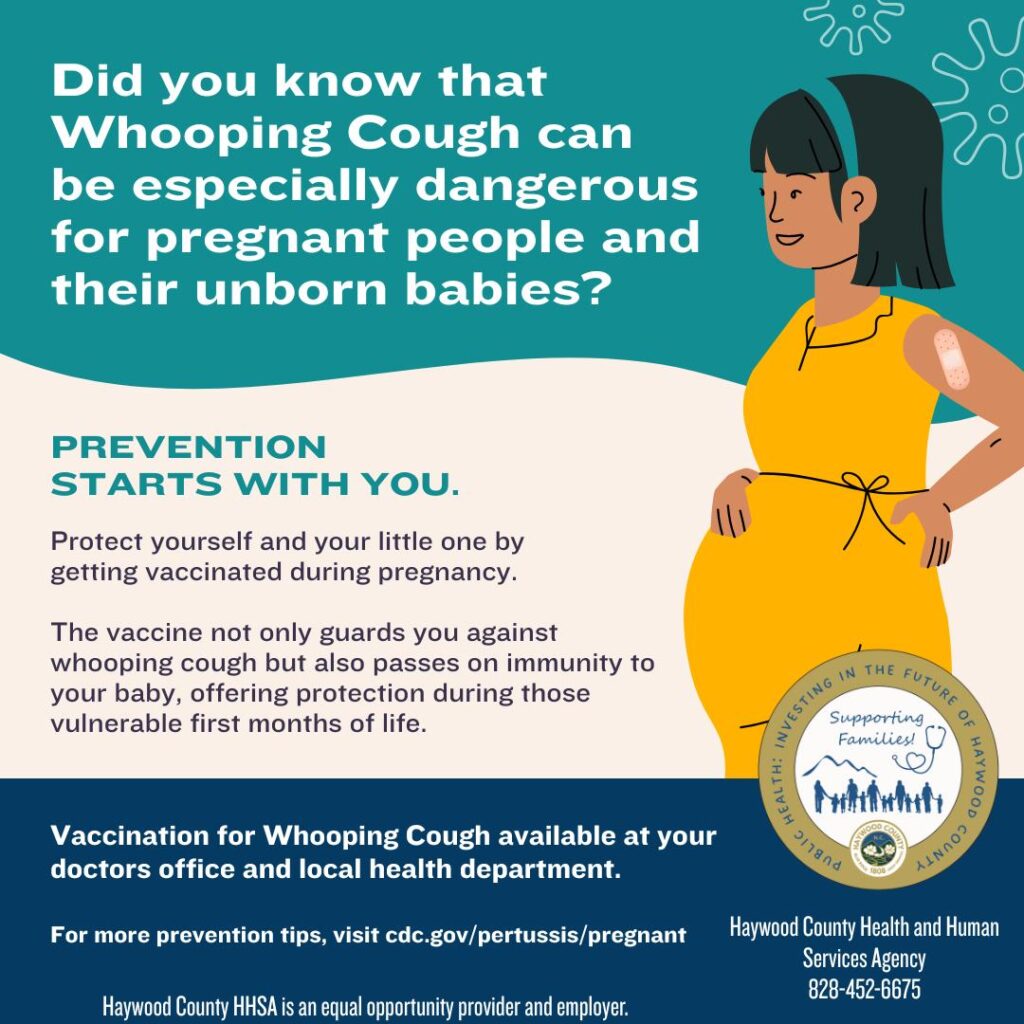
Spread through coughing or sneezing, whooping cough can disrupt breathing, eating, and sleeping, and according to the local health department, it “can be especially dangerous for babies, pregnant women, and people with weakened immune systems.”
Vaccination is the most effective prevention method for whooping cough. In Haywood County, vaccinations are available at Haywood County Health and Human Services, located at 157 Paragon Parkway in Clyde. Insured and uninsured patients can call 828-452-6675 to schedule an appointment or ask questions.
According to the CDC, “While reported cases of whooping cough have been trending down since a peak in November 2024, cases remain elevated in 2025.” Here is more information.
What is happening in DC regarding vaccines?
A recent article published in the Journal of the American Medical Association says:
Vaccines are one of the greatest global public health achievements. Vaccine recommendations have been critical to the global eradication of smallpox and the elimination of polio, measles, rubella, and congenital rubella syndrome in the US. They have also dramatically decreased cases of hepatitis, meningitis, mumps, pertussis (whooping cough), pneumonia, tetanus, and varicella (chickenpox), and prevented cancers caused by hepatitis B virus and human papillomaviruses. Recent scientific advancements enabled the accelerated development, production, and evaluation of COVID-19 vaccines, leveraging novel technologies that are estimated to have prevented approximately 1.6 million hospitalizations and 235 ,000 deaths in the US alone.
— “Advisory Committee on Immunization Practices at a Crossroads,” written by former members of the ACIP, footnotes omitted
According to NC Health News, “On June 9, word started to spread that the U.S. Secretary of Health and Human Services Robert F. Kennedy Jr. had unilaterally ended the terms of all 17 members of the Advisory Committee on Immunization Practices (known commonly as ACIP), the committee within the Centers for Disease Control and Prevention that makes recommendations on which vaccines to use in the U.S.”
The New York Times reported on June 26, “An advisory panel recently appointed by Health Secretary Robert F. Kennedy Jr. voted on Thursday to walk back longstanding recommendations for flu vaccines containing an ingredient that the anti-vaccine movement has falsely linked to autism.”
Rose Hoban with NC Health News notes in her reporting, “if ACIP declines to recommend vaccines, it could affect the Vaccines for Children program.”
If you have questions about vaccines, here is information on “14 questions answered with the nuance you may be looking for,” created in collaboration with the Yale School of Public Health.
Editor’s note and correction: This article has been updated to indicate that the CDC no longer recommends the COVID vaccine for healthy children. The website says that parents should make that decision in consultation with their health care provider.
Recommended reading
